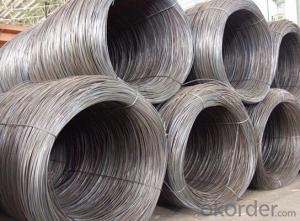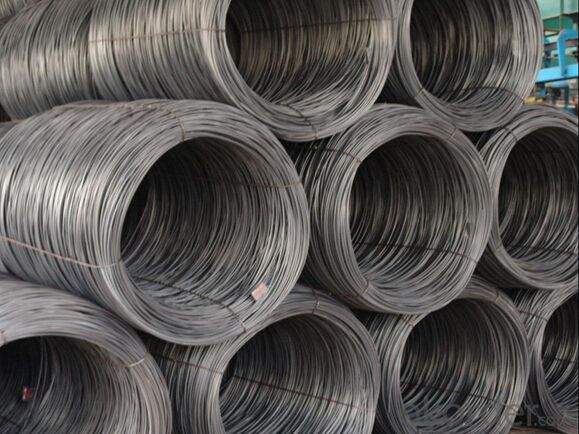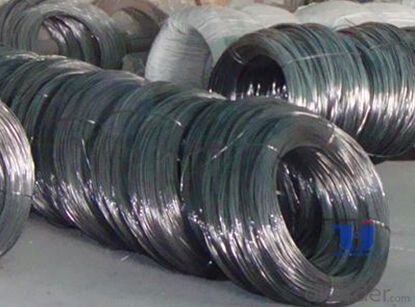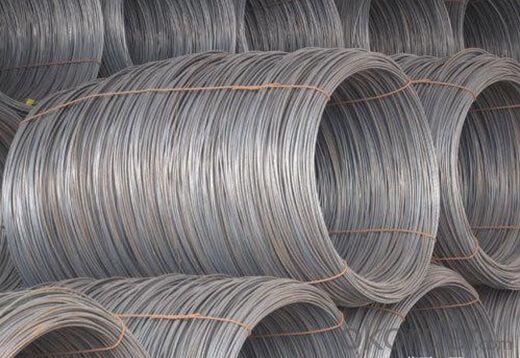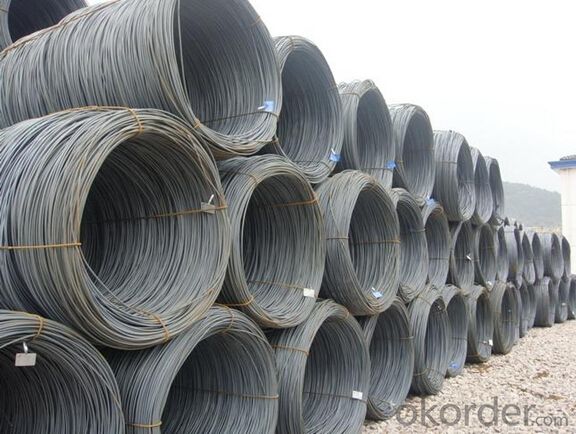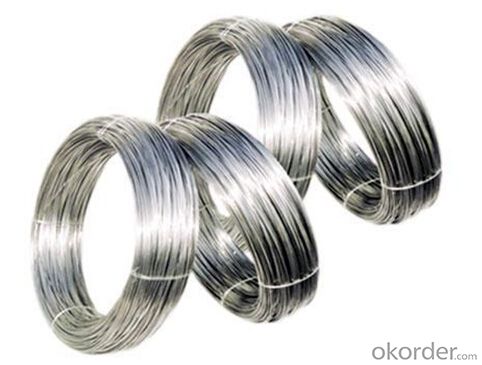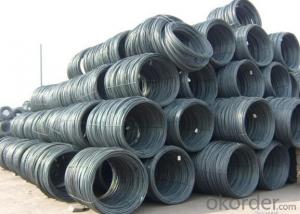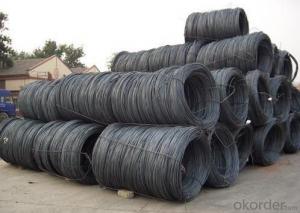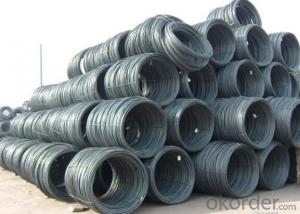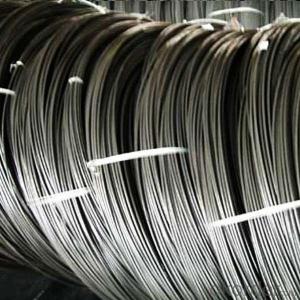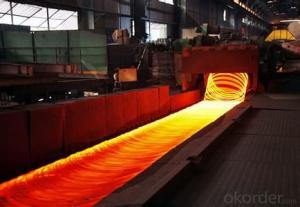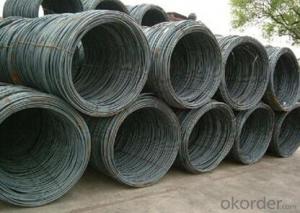Steel Wire Rod in Coils Q195-Q195L High Speed Wire Rod
- Loading Port:
- Tianjin
- Payment Terms:
- TT OR LC
- Min Order Qty:
- 25 m.t.
- Supply Capability:
- 10000 m.t./month
OKorder Service Pledge
OKorder Financial Service
You Might Also Like
Specification
Hot sale Steel Wire Rod in Coils Q195-Q195L High Speed Wire Rod
Specification
Packing: | With Bundles or Standard Seaworthy Packing |
Size: | Diameter 5.5mm--10mm |
Standard: | GB/ASTM/JIS/DIN |
Productivity: | 500 Ton/Month |
Unit Price/Payment: | T/T With 30% Advance Payment, The Balance Against |
HS Code: | 7214200000 |
Min. Order: | 1 Ton |
Composition: | Ferrous Steel Scrap |
Technique: | Cold Drawn |
Surface Treatment: | Plain |
Steel Grade: | Q195, Q215, Q235, SAE 1006, 1008,1010,1012,1016,1018, ect |
Application: | Structural Steel Bar |
Type: | Carbon Steel Bar |
Shape: | Round, Long |
Chemical Composition
Grade | Chemical Composition(%) | |||||
C | Mn | Si | S | P | Cr | |
SAE1006B | 0.03~O.07 | ≤0.32 | ≤0.30 | ≤0.045 | ≤0.040 | 0.3-0.35 |
Mechanical properties | ||||||
Yield strength(N/mm2) | Tensile strength(N/mm2) | Elongation(%) | ||||
250-280 | 350-380 | ≥32 | ||||
Grade | Chemical Composition(%) | |||||
C | Mn | Si | S | P | Cr | |
SAE1008B | 0.10max | 0.3~O.50 | 0.15max | 0.050max | 0.040 max | 0.3-0.35 |
Mechanical properties | ||||||
Yield strength(N/mm2) | Tensile strength(N/mm2) | Elongation(%) | ||||
≥195 | 315-430 | ≥30 | ||||
Company Information
CNBM International Corporation is the most import and export platform of CNBM group(China National Building Material Group Corporation) ,which is a state-owned enterprise, ranked in 270th of Fortune Global 500 in 2015.
With its advantages, CNBM International are mainly concentrate on Cement, Glass, Iron and Steel, Ceramics industries and devotes herself for supplying high quality series of refractories as well as technical consultancies and logistics solution.
After-sale service | CNBM provides the services and support you need for every step of our cooperation. We’re the business partners you can trust; you can relax and get on with doing business. |
For any problem, please kindly contact us at any your convenient time, we’ll reply you in our first priority within 24 hours | |
Advantages | Industry experience over 20 years. |
Shipment of goods -More than 70 countries worldwide. | |
The most convenient transport and prompt delivery. | |
Competitive price with best service. | |
High technical production line with top quality products. | |
High reputation based on best quality products. |
Products Show
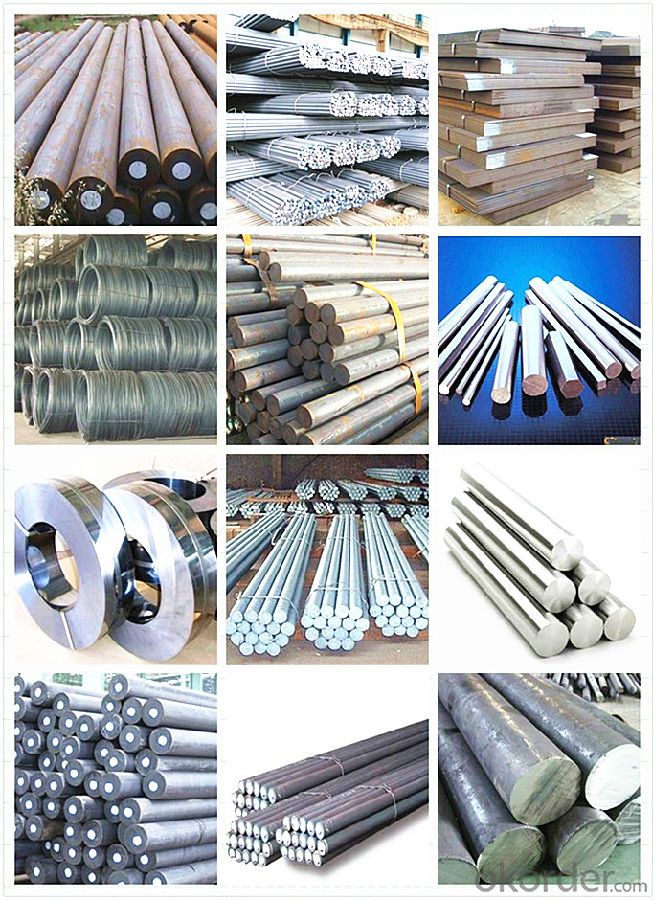
FAQ
Are you a trading company or manufacturer? | Manufacturer |
What’s the MOQ? | 3 metric ton |
What’s your delivery time? | 15-35 days after downpayment received |
Do you Accept OEM service? | Yes |
what’s your delivery terms? | FOB/CFR/CIF |
What's the Payment Terms? | 30% as deposit,70% before shipment by T/T |
Western Union acceptable for small amount. | |
L/C acceptable for large amount. | |
Scrow ,Paybal,Alipay are also ok | |
Why choose us? | Chose happens because of quality, then price, We can give you both. |
Additionally, we can also offer professional products inquiry, products knowledge train (for agents), smooth goods delivery, excellent customer solution proposals. | |
What's your available port of Shipment? | Main Port, China |
What’s your featured services? | Our service formula: good quality+ good price+ good service=customer's trust |
Where are your Market? | Covering more than 160 countries in the world |
- Q: How does special steel contribute to the automotive fuel efficiency?
- Special steel contributes to automotive fuel efficiency in several ways. Firstly, special steel is often used in the construction of lighter and stronger components such as the chassis, body panels, and engine parts. This reduces the overall weight of the vehicle, leading to improved fuel economy. Secondly, special steel can be used in the manufacturing of components like exhaust systems, which are designed to reduce emissions and improve fuel efficiency. Additionally, special steel can also be utilized in the production of more efficient engine designs, such as turbochargers, which enhance the power output while minimizing fuel consumption. Overall, the use of special steel in the automotive industry plays a crucial role in enhancing fuel efficiency and reducing environmental impact.
- Q: How is special steel used in the production of gears?
- Special steel is commonly used in the production of gears due to its superior strength, durability, and resistance to wear and fatigue. The high-quality properties of special steel allow gears to withstand heavy loads, high speeds, and harsh operating conditions, ensuring reliable and efficient performance. Additionally, special steel can be heat treated to optimize its hardness and toughness, further enhancing gear performance and extending their lifespan.
- Q: Can special steel be used in the mining equipment manufacturing industry?
- Yes, special steel can be used in the mining equipment manufacturing industry. Special steel, often known as alloy steel, offers improved strength, durability, and resistance to wear and corrosion compared to standard steel. These properties make it well-suited for the harsh and demanding conditions encountered in mining operations. Special steel can be utilized in various mining equipment components, such as drill bits, crushers, conveyor systems, and excavator buckets, to enhance their performance and prolong their lifespan.
- Q: How does special steel contribute to the food processing aftermarket industry?
- Special steel plays a crucial role in the food processing aftermarket industry by providing equipment and components that ensure safety, efficiency, and durability. With its exceptional properties such as corrosion resistance, high strength, and heat resistance, special steel is used to manufacture cutting blades, sieves, conveyors, and other machinery parts. This allows for precise cutting, sieving, and conveying of various food products, maintaining their quality and reducing contamination risks. Overall, special steel enhances the performance and longevity of food processing equipment, enabling the industry to meet stringent hygiene standards and increase productivity.
- Q: What are the common challenges in casting special steel?
- Some common challenges in casting special steel include achieving uniformity in composition and microstructure, controlling the cooling rate to prevent cracking and distortion, minimizing the presence of impurities and inclusions, and ensuring proper solidification and shrinkage control. Additionally, the high melting points and reactivity of special steel alloys can pose challenges in terms of handling and maintaining the desired chemistry throughout the casting process.
- Q: Can special steel be used in cryogenic applications?
- Yes, special steel can be used in cryogenic applications. Special steels, such as austenitic stainless steels like 304 or 316, are commonly used in cryogenic applications due to their excellent mechanical properties and resistance to low temperatures. These steels are able to maintain their strength, toughness, and ductility even at extremely low temperatures, making them suitable for use in cryogenic environments. Additionally, special steels can also exhibit good resistance to corrosion and thermal expansion, which are important factors to consider in cryogenic applications. Overall, special steel alloys are well-suited for use in cryogenic applications due to their unique combination of properties that enable them to withstand and perform in extremely cold conditions.
- Q: How is special steel used in the railway supply chain?
- Special steel is used in the railway supply chain for various critical components such as rails, wheels, and axles, due to its superior strength, durability, and resistance to wear and fatigue. This high-quality steel ensures safe and reliable train operations, reducing maintenance needs and increasing the lifespan of railway infrastructure.
- Q: How does special steel perform under extreme temperatures?
- Special steel is designed to perform exceptionally well under extreme temperatures. It has high heat resistance, maintaining its strength and structural integrity even when exposed to extreme heat or cold. This makes it suitable for various applications, such as in aerospace, automotive, and power generation industries, where it can withstand the demanding conditions of extreme temperatures without compromising its performance.
- Q: How does special steel perform in high-temperature oxidation with sulfur-containing atmospheres?
- Special steel, due to its unique composition and properties, exhibits excellent performance in high-temperature oxidation with sulfur-containing atmospheres. Its high resistance to corrosion and oxidation ensures that it can withstand the harsh conditions and maintain its structural integrity even at elevated temperatures. Additionally, special steel's ability to form a protective oxide layer helps to prevent sulfur-related damage and maintain its mechanical properties over time.
- Q: How does special steel contribute to the defense aftermarket industry?
- The defense aftermarket industry heavily relies on special steel to manufacture essential materials for defense equipment and components. Special steel possesses exceptional properties, including strength, durability, and resistance to corrosion and extreme temperatures, making it the preferred choice for producing military vehicles, aircraft, weapons, and defense systems. One significant contribution of special steel to the defense aftermarket industry is its use in armor and ballistic protection. By utilizing special steel alloys, armor plates and panels can be created to withstand high-velocity impacts, providing crucial protection for military personnel and vehicles against enemy fire. These materials offer enhanced protection, reducing the risk of casualties and damage during combat. Furthermore, special steel is essential in the production of aerospace components. Military aircraft are vital for various defense operations, such as reconnaissance, surveillance, and combat. Special steel alloys ensure the safety, reliability, and performance of these aircraft by manufacturing critical components like landing gear, engine parts, and structural elements. Special steel's resistance to corrosion and extreme conditions also makes it suitable for constructing naval vessels and submarines. These assets operate in harsh marine environments, facing saltwater, extreme temperatures, and constant mechanical stress. Special steel alloys with high-strength properties and corrosion resistance are utilized in building ship hulls, propeller shafts, and critical components, ensuring longevity and operational effectiveness. Moreover, special steel contributes to the defense aftermarket industry through its role in the supply chain. The production and maintenance of defense equipment and components often require specialized machinery and tools, which are made from special steel. The availability of these materials is crucial for maintaining a robust defense industry and enabling efficient production and maintenance of defense systems. In conclusion, special steel plays a vital role in the defense aftermarket industry by providing the necessary materials for producing high-performance, reliable, and durable defense equipment. Its unique properties contribute to the safety, effectiveness, and longevity of military vehicles, aircraft, weapons, and naval vessels, ultimately enhancing the capabilities of defense forces worldwide.
Send your message to us
Steel Wire Rod in Coils Q195-Q195L High Speed Wire Rod
- Loading Port:
- Tianjin
- Payment Terms:
- TT OR LC
- Min Order Qty:
- 25 m.t.
- Supply Capability:
- 10000 m.t./month
OKorder Service Pledge
OKorder Financial Service
Similar products
Hot products
Hot Searches
Related keywords
